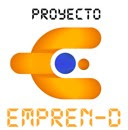 Microsoft forwarded us the information about this event that they are organizing in Barcelona on the 20th of May at 6pm. If you'd like to attend just subscribe at www.barcelonanetactiva.com
Microsoft forwarded us the information about this event that they are organizing in Barcelona on the 20th of May at 6pm. If you'd like to attend just subscribe at www.barcelonanetactiva.com
En el mes de abril AIESEC en cantoblanco, ha hecho otro círculo de aprendizaje, sobre la temática de ser emprendedor pero esta vez hablamos de emprendedores sociales.
Debatiendo surgieron muchas ideas, compactadas y entrelazadas es lo siguiente:
El emprendedor social es alguien que plantea soluciones innovadoras a problemas sociales e intentar mejorar la sociedad, quieren hacer ver a la sociedad que tiene que haber un cambio, lo que le diferencia del emprendedor empresarial es que no sólo quiere prestigio propio, sino conseguir ayudar a los demás.
Algunos ejemplos de emprendedores son Isabel Guirao, que quiere que los discapacitados en la sociedad, Jean Claude se centra en los inmigrantes que están desfavorecidos en recursos financieros.
El emprendedor social en definitiva busca el éxito para la sociedad.
Vimos el vídeo de un emprendedor llamado Iqbal Quadir, que explicaba que es importante impulsar la economía de los países pobres en vez de simplemente darles dinero o regalarles comida, esto es incluso contraproducente a lo que se pretende, ya que esto no fomenta el desarrollo.
Hay que dar ideas para desarrollar e incrementar los negocios.
Por último, se da mucha importancia al ser emprendedor empresarial, pero ello es producto de unos valores y una forma de ser, en AIESEC se fomenta la proactividad como forma de ser emprendedor, y en AIESEC siempre está abierto a nuevas ideas, pero no sólo a nuevas ideas, sino que se trata de llevarlas a cabo.
Una visión sin acción es sólo una alucinación.
 Big firms are joining the queue to follow in Muhammad Yunus’s footsteps by developing businesses designed to fix social ills.
Big firms are joining the queue to follow in Muhammad Yunus’s footsteps by developing businesses designed to fix social ills. Want to try building a sustainable and responsible business? On the website of British Telecom you can try out if you have the right analytical skills to do so, go here: Business Game
Want to try building a sustainable and responsible business? On the website of British Telecom you can try out if you have the right analytical skills to do so, go here: Business Game Hey everyone,
Hey everyone,Do you think being entrepreneurial only means setting up your own business? Is there room for entrepreneurs inside other organizations? Have you heard the term "intrapreneurship"?
"Intrapreneurship is the practice of entrepreneurial skills and approaches by or within a company or at home. Employees, perhaps engaged in a special project within a larger firm are supposed to behave as entrepreneurs, even though they have the resources and capabilities of the larger firm to draw upon. Capturing a little of the dynamic nature of entrepreneurial management (trying things until successful, learning from failures, attempting to conserve resources, etc.) is claimed to be quite valuable in otherwise static organizations.
An Intrapreneur is the person who focuses on innovation and creativity and who transforms a dream or an idea into a profitable venture, by operating within the organizational environment. Thus, Intrapreneurs are Inside entrepreneurs who follow their founder’s example."
Source: Wikipedia
Proyecto EMPREN-D
Un CÍRCULO DE APRENDIZAJE consiste en un debate sobre un tema de interés común que tiene por objeto el aprendizaje a partir de los distintos puntos de vista de los asistentes.
El Miércoles 29 estuvimos hablando de ¿qué se necesita para ser emprendedor?
Estas fueron nuestras opiniones:
- CREAR UNA EMPRESA con el objeto de LLEVAR A CABO TUS PROPIAS IDEAS.
- También se puede ser emprendedor dentro de una gran empresa---> empresarios buscan personas emprendedoras
("Busisness angels" empresas que buscan el punto de encuentro entre "ideas innovadoras" y financiación)
- Importancia de conocer los "factores fracasos". Para quién esté interesado, este es un buen libro para estar al día sobre el tema:
El libro negro del emprendedor, Fernado Trías de Bes
En este link encontrareis un breve resumen: http://www.leergratis.com/otros/el-libro-negro-del-emprendedor.html
- Un buen emprendedor debe asumir riesgos.
- Emprendedor es aquel que VA POR DELANTE AL RESTO.
- Sentimiento de seguridad: trabajar para otros nos hace estar más seguro, mientras que asumir responsabilidades nos hace ser consciente del riesgo de la toma de nuestras decisiones, pudiendo crear más inseguridad.
- Responsabilidad se diluye entre las personas.
(ej: varias personas pueden estar viendo un acto de maltrato en medio de la calle y pensad: "ya hará alguien algo" y que nadie haga nada...esto se debe a que la parte de responsabilidad que tiene cada persona es tan pequeña que todo el mundo esperara que "el otro" haga algo).
- Crear una empresa con baja financiación, a través de una buena idea.
(ej: "conduzco por ti": personas que te llevan el coche a casa después de que tú te hayas tomado unas cuantas copillas y no veas ni tres en un burro. Los conductores se desplazarían en bicis facilmente plegables para guardar en el maletero de los coches)
- Para ser emprendedor es necesario que te APASIONE TU TRABAJO.
Según una encuesta estas son las 3 CARACTERÍSTICAS para ser EMPRENDEDOR:
- AUTOCONTROL (fuerza de voluntad, asumir propias responsabilidades)
- AUTOCONFIANZA (sentirse capaz)
- SENTIMIENTO DE URGENCIA (proactividad)
